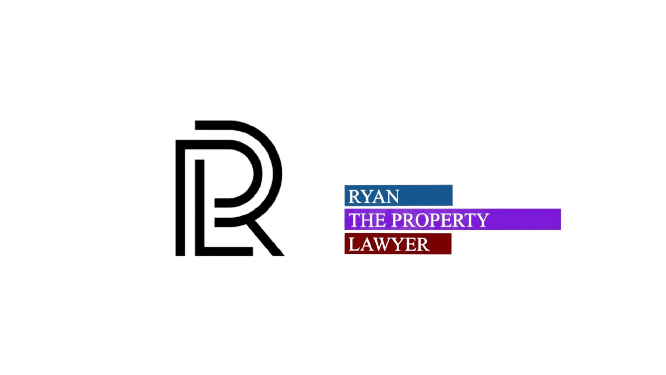A Co-Ownership Agreement governs the relationship and expectations of co-owners relating to their shared ownership in a property. It deals with items such as ownership interests, financing, maintenance of the property, and each owners’ rights and responsibilities.
Co-ownership agreements may be entered into during the purchase of property, immediately following the purchase, or at any such time as required by the co-owners.
Co-ownership agreements are typically used in the following circumstances:
- purchase of property with family or friends for residential purposes;
- purchase of a property with other people for investment purposes;
- purchase of property with a spouse, with varying interests in the property; or,
- establishment of mortgage repayment arrangements or refinancing in order to divide responsibility for the mortgage amongst several people.
Co-ownership agreements must be tailored to reflect the specific needs, situation and intentions of the co-owners. Typically, a co-ownership agreement will include the following provisions:
- Whether title will be taken as joint tenants or tenants-in-common (this important topic is discussed in our post here)
- The persons entitled to reside at the property (whether on a full-time basis or on a temporary basis, and during certain periods or for a specific duration, in the case of vacation properties);
- The apportionment of ownership interest in the property;
- The apportionment of mortgage payment responsibilities;
- The manner in which rents are to be distributed between co-owners, in the case of investment properties;
- The apportionment of responsibility for maintenance and repair of the property;
- Rights to alter or make improvements to the property, and mechanisms for co-owner consent;
- The manner in which the property is to be sold or dispose of, including mechanisms such as rights of first refusal to purchase a leaving co-owner’s interest, in the event that an owner wishes to sell their share of the property;
- The consequences resulting from the death or bankruptcy of a co-owner;
- Mechanisms for dispute resolution, including arbitration or mediation, in the event of disagreement among co-owners;
- The consequences of a co-owner s defaulting on one of their responsibilities.
When Are They Used?
Co-ownership agreements should be prepared in a variety of real estate ownership scenarios, including between friends, family, business partners, investors, spouses, roommates and business entities such as corporations or partnerships.
For example, co-ownership might arise in the context of both single or multi-unit properties; in the case of a multi-unit property, the co-ownership agreement may deal with ownership interests concerning all units in the property, or the interests in one or more specific units in the property.
In the context of marriage, co-ownership agreements are a precise mechanism to manage property ownership between spouses, and they are preferable to marriage contracts because they deal with all aspects of the ownership and specific uses of a property. In fact, we recommend that a co-ownership agreement be used in conjunction with a marriage contract, because a well-prepared marriage contract will deal with complex issues that a co-ownership agreement will not, such as the consequences of a marriage dissolution, child rearing goals, custody arrangements, and spousal support.
Co-ownership agreements arise as useful tools in a number of other situations:
- A devise in a will or conveyance by a trust to multiple people as co-owners;
- A family property passing down/devise to successive generations;
- A decision among friends or family to own or invest in property together, for residential, investment or vacation purposes, including ownership of cottages or time shares;
- A decision between business partners to own property together for commercial or investment purposes;
- Following a divorce, where the former couple do not wish to sell the property, but instead wish to, for instance, benefit from renting it out.
In any context, co-ownership agreements create binding commitments; they provide guidance by offering a contractual framework for rights & responsibilities, ensuring that all co-owners are able to make decisions efficiently and effectively.
Do I Need a Co-Ownership Agreement?
If you have purchased a property, or if you are contemplating the purchase or resale of a property or a property interest, with more than one (1) person, you should have a co-ownership agreement prepared.
Consider the following simple test.
If you answer “No” to more than two (2) of the questions below, then we strongly recommend that you put in place a co-ownership agreement.
Have you and your co-owners resolved:
- The intended contributions (%) of each co-owner towards the down-payment of the property?
- Each co-owner’s financial contributions towards household capital expenditures (excluding mortgage)?
- Will each co-owner’s mortgage contribution vary over time?
- The manner by which all co-owners will take title to the property (either as joint tenants or tenants-in-common)?
- Whether all co-owners will own an equal interest in the property?
- How a co-owner’s ownership interest will be disposed of if they want to sell their interest or leave the home?
- How liability for damages to the property is apportioned between all co-owners?
If you have answered “No” to more than two (2) of the questions below, then you may not have worked through all of the issues with your co-owners, and we strongly recommend that you put a co-ownership agreements into place. Contact us to learn more about how we can help you.
RPL is Ontario’s leading law firm in co-ownership of residential and commercial property. We have helped dozens of co-owners structure their agreements, and close on their dream home. Contact us to learn more about how we can help you.
Author Profile

Latest Blog
 Uncategorised22 December 2023What Constitutes a Legal Partnership in Ontario?
Uncategorised22 December 2023What Constitutes a Legal Partnership in Ontario? Uncategorised22 December 2023Characteristics of a Corporation in Ontario
Uncategorised22 December 2023Characteristics of a Corporation in Ontario Uncategorised22 December 2023Intentions Matter When Co-Owning Property
Uncategorised22 December 2023Intentions Matter When Co-Owning Property Uncategorised22 December 2023Consequences of Operating an Ontario Partnership
Uncategorised22 December 2023Consequences of Operating an Ontario Partnership




